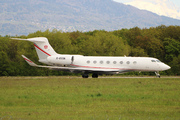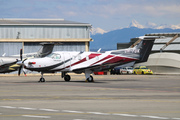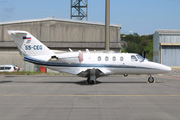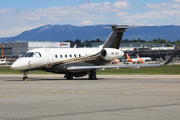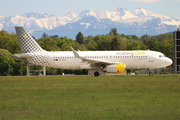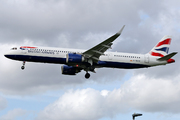Dépêches
American Aviation Institute, Citing High Airline Cancellations, Calls for Congressional Investigation into DOT Rulemaking
Dépèche transmise le 9 juin 2011 par Business Wire
WASHINGTON--(BUSINESS WIRE)--The American Aviation Institute (AAI), a Washington, D.C.-based commercial aviation think tank, today said that U.S. government data continue to show a massive and sustained jump in airline flight cancellation rates under consumer protection rules begun a year ago. While the objective of ending egregious tarmac delays is valid, AAI said DOT’s botched estimates, haphazard enforcement standards and intentional ambiguity about fines has caused more than $3.9 billion in consumer harm.
“DOT refuses to acknowledge what is now perfectly clear after a year under the rule: the rule is wrong and it has caused consumer harm.”
Today, AAI said it is calling on Congress to investigate DOT rulemaking.
“Nobody wants to be stuck for hours on a plane, but nobody wants to be stranded for days by cancellations either,” said Darryl Jenkins, AAI Chairman. “DOT refuses to acknowledge what is now perfectly clear after a year under the rule: the rule is wrong and it has caused consumer harm.”
DOT established a three-hour airline rule in April 2010. The rule forces airlines to return flights to the gate before three hours after departure or face multi-million dollar fines per flight, AAI said. Data show airlines elect often to cancel flights before the two-hour taxi mark, and usually before gate departure, rather than risk massive fines, AAI said.
DOT projected just 41 annual cancellations would result from the rule. The April 2011 flight cancellation data, where there were nearly 10,000 cancellations, is the start of the summer thunderstorm season when the risk of tarmac delays is greatest. DOT data show that cancellations increased to 2.0% of all flights in April from 0.69% in April 2010.
“In expanding the rule this year to international flights, DOT chose to ignore flight cancellation impact altogether,” said Joshua Marks, AAI Executive Director. “On similar operational levels, cancellations the first year under the rule increased 18%. Cancellation rates during bad weather jumped 42%.”
“DOT called for a full year of cancellation data under the rule before taking action. That year has passed. The impact is shocking,” said Marks. AAI called on DOT to work collaboratively with airlines to resolve ambiguity, introduce reasonable penalties and end tarmac delays without the collateral damage of cancellations.
“Each cancellation disrupts travelers’ vacations and meetings and costs the airlines thousands of dollars – which could lead to higher fares,” Jenkins said. “The airlines will work with DOT, but DOT isn’t listening. An expansion of the tarmac delay rule to international flights in August 2011 is likely to cause even more passenger harm from cancellations.”
AAI said it is calling for public and Congressional review of DOT’s regulatory impact analyses, which exclude any material discussion of cancellations resulting from the tarmac rule.
Data and background can be seen at TarmacLimits.com.
AAI is the airline industry’s independent business and policy-oriented think tank, drawing on business, academic, regulatory and consumer perspectives to analyze airline, airport and government practices and policies, and make specific recommendations for the industry's improvement.
- 26/04 Norse Atlantic Airways s'envole vers Las Vegas
- 26/04 easyJet a réceptionné son 400e Airbus
- 26/04 Icelandair : résultats mars 2024
- 26/04 Air France dévoile une nouvelle campagne publicitaire
- 26/04 Volotea inaugure sa liaison entre Vérone et Bordeaux
- 26/04 Ryanair célèbre ses 25 ans à l'aéroport de Biarritz
- 24/04Ibis Styles London Heathrow : l'hôtel géré par un passionné d'aviation pour les passionnés d'aviation (photos + vidéos)
- 23/04 SkyUp renouvelle son partenariat avec Wizz Air
- 23/04 Play : résultats de mars 2024
- 23/04 Les garde-côtes japonais commande trois Airbus H225 supplémentaires
- 23/04 Vueling et Make-A-Wish France signent un partenariat
- 23/04 TUI annonce ses destinations au départ de Deauville pour l'été 2024.
- 23/04 Twin Jet renforce son programme de vols sur la ligne Toulouse/Rennes
- 23/04 Norse Atlantic Airways : résultats du mois de mars 2024
- 23/04 Volotea renforce son offre entre Lille et le Maroc
- 22/04 Finnair a dévoilé son programme de vol pour les saisons hiver 2024 et été 2025
- 22/04 Qatar Airways annonce le lancement de vols à destination de Kinshasa
- 22/04 Vietnam Airlines et CAE prolongent leur accord
- 22/04 Mermoz Academy de Tours commande des Tecnam P-Mentor
- 22/04 Transavia France reçoit son 2e Airbus A320neo


